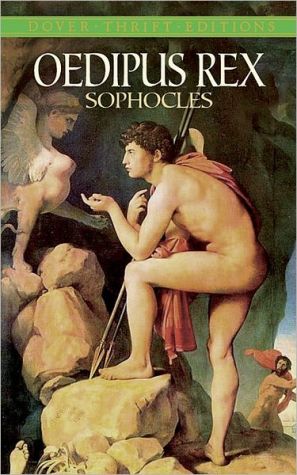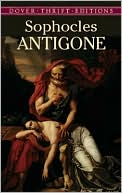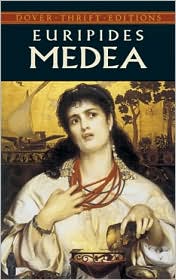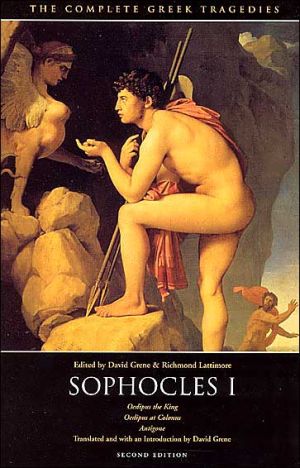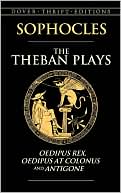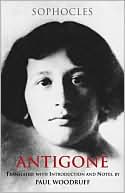The Oresteia: Agamemnon, the Libation-Bearers & the Furies
In the Oresteia -- the only trilogy in Greek drama that survives from antiquity -- Aeschylus took as his subject the bloody chain of murder and revenge within the royal family of Argos. As they move from darkness to light, from rage to self-governance, from primitive ritual to civilized institution, their spirit of struggle and regeneration becomes an everlasting song of celebration.
Search in google:
Classic trilogy by great tragedian concerns the bloody history of the House of Atreus. Grand style, rich diction and dramatic dialogue. Still powerful after 2500 years.BooknewsTranslators Grene and O'Flaherty present a modern translation of the three plays composing the Oresteia and, with the assistance of director Nicholas Rudall, an abridged stage adaptation which transforms the Oresteia into an effective modern stage play. Includes introductory material. Cloth edition ($32.50). Annotation c. Book News, Inc., Portland, OR (booknews.com)
Foreword7Acknowledgements11A Reading of 'The Oresteia': The Serpent and the Eagle13Agamemnon99The Libation Bearers173The Eumenides227The Genealogy of Orestes279Select Bibliography281Notes285Agamemnon285The Libation Bearers305The Eumenides317Glossary331
\ BooknewsTranslators Grene and O'Flaherty present a modern translation of the three plays composing the Oresteia and, with the assistance of director Nicholas Rudall, an abridged stage adaptation which transforms the Oresteia into an effective modern stage play. Includes introductory material. Cloth edition ($32.50). Annotation c. Book News, Inc., Portland, OR (booknews.com)\ \ \ \ \ Kirkus ReviewsThough it's tempting to imagine the late English poet laureate's long tortured relationship with the image of (his wife) feminist heroine Sylvia Plath as its subtext, this vivid free-verse translation of Aeschylus' dark and bloody tragic trilogy (comprising Agamemnon, Choephori, and Eumenides) more properly evinces Hughes's wide range of interests and mastery of classic literatures. His nearly conversational rhythms produce an arresting mixture of colloquialism and formality, enlivened by strong imagery (as in the matricidal Orestes' declaration that "This house has been the goblet / That the demon of homicide, unquenchable, / Has loved to drain"), and only infrequently weakened by astonishing woodenness—as in Clytemnestra's cool reply to the Chorus who lament her murder of her husband: "You think I'm an irresponsible woman? / You are making a mistake"). Perhaps not the ultimate "acting edition" it claims to be, but, still, an essential further installment in the always interesting oeuvre of a gifted poet who was also a diligent scholar.\ \

